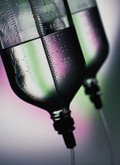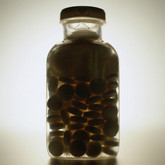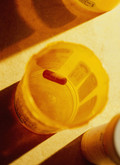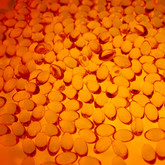Biosimilars/General
|
Posted 06/04/2012
Amgen and AstraZeneca make monoclonal antibody deal
Biotech giant Amgen and pharma major AstraZeneca announced on 2 April 2012 an agreement to jointly develop and commercialise five monoclonal antibodies from Amgen’s clinical inflammation portfolio (AMG 139, AMG 157, AMG 181, AMG 557 and brodalumab [AMG 827]), which are expected to be used to treat inflammatory diseases.
As part of the deal AstraZeneca will make an upfront payment of US$50 million and the companies will then share both costs and profits. The collaboration will provide Amgen with additional resources to optimally progress its portfolio and Amgen will benefit from the strong respiratory, inflammation and asthma development expertise of MedImmune–AstraZeneca’s biologicals arm.
Related articles
Amgen finally jumps on biosimilars bandwagon
AstraZeneca expands its generics business with Indian agreements
Source: Amgen, AstraZeneca





















